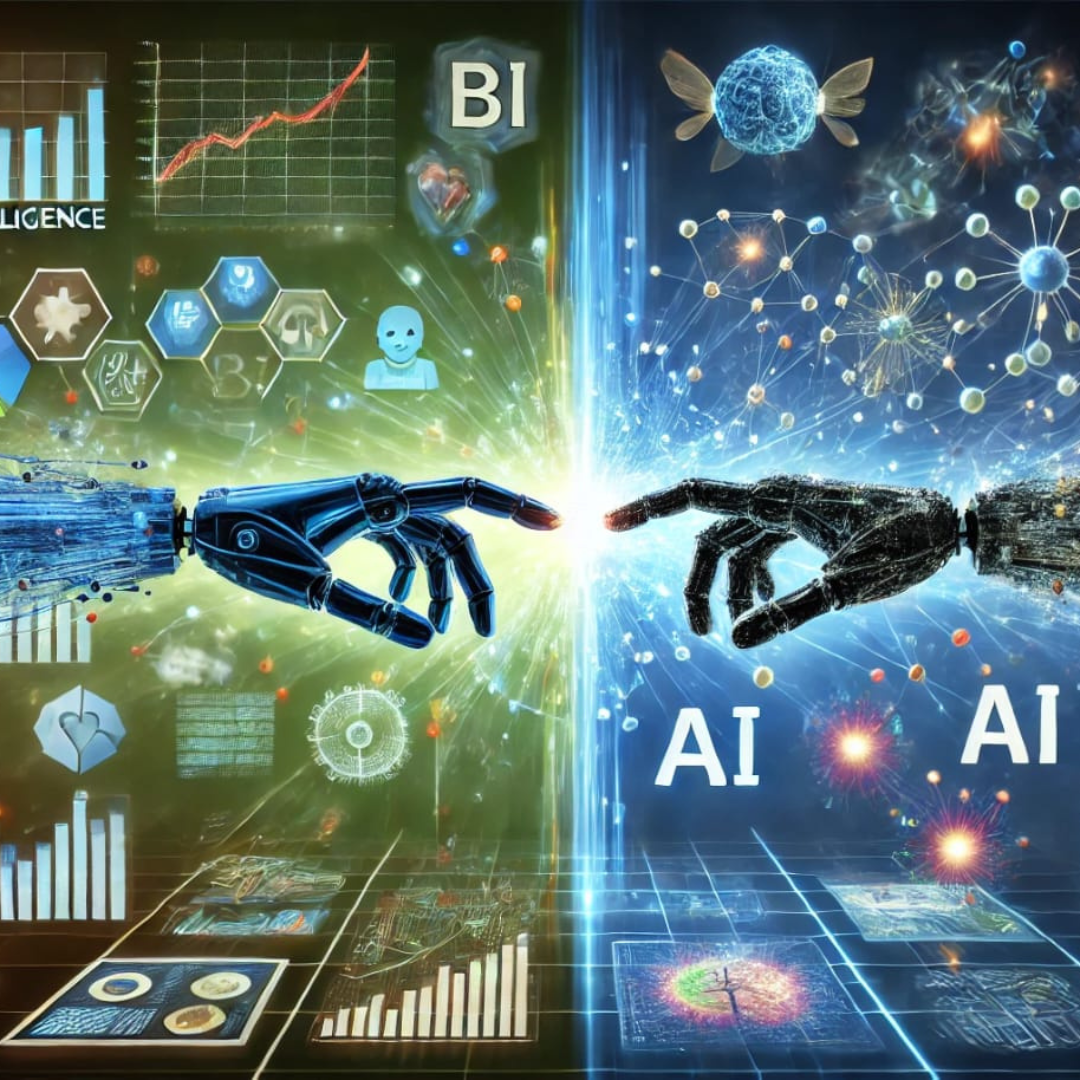
Using Artificial Intelligence for Business Intelligence

Artificial Intelligence (AI) has transformed the way businesses operate, and one of its most significant contributions lies in enhancing Business Intelligence (BI). By integrating AI with BI, organizations can process vast amounts of data, uncover deeper insights, and make more informed strategic decisions. Here's how
AI is revolutionizing business intelligence and strategy building:
1. Data Analysis and Insights Generation
AI-powered BI systems analyze massive datasets, identifying trends, patterns, and correlations that human analysts may miss. Machine learning algorithms improve over time, providing more accurate and actionable insights. This enables businesses to make data-driven decisions that are backed by evidence rather than intuition.
2. Predictive Analytics
Predictive analytics, powered by AI, allows businesses to forecast future trends, customer behaviors, and market conditions. This foresight can guide long-term strategies, helping companies optimize resources, reduce risks, and seize emerging opportunities. For instance, AI can predict product demand fluctuations or customer churn rates, allowing businesses to adapt accordingly.
3. Real-Time Data Processing
AI enhances real-time data processing, ensuring that businesses receive up-to-the-minute insights. This is critical for industries like finance, where quick decision-making can significantly impact profitability. AI-driven BI tools process live data streams and generate actionable insights, enabling companies to stay agile and responsive.
4. Natural Language Processing (NLP)
AI’s natural language processing capabilities allow users to interact with BI tools using everyday language. This makes data analysis more accessible to non-technical users, enabling them to ask questions and receive insights without needing specialized knowledge of data science.
5. Automating Routine Tasks
AI automates repetitive and time-consuming tasks within BI workflows, such as data cleaning, report generation, and trend identification. This frees up time for analysts to focus on more complex tasks like interpreting insights and making strategic decisions.
6. Enhanced Data Visualization
AI-powered BI tools offer advanced data visualization features that help businesses understand their data better. By transforming raw data into interactive dashboards, charts, and graphs, AI simplifies complex data sets, making it easier for stakeholders to interpret and act on the information.
7. Improving Strategic Decision-Making
The integration of AI with BI enables organizations to build more robust strategies. AI provides deeper, more accurate insights, which help businesses align their strategies with real-world data. Whether it’s identifying market trends, optimizing marketing campaigns, or improving operational efficiency, AI-driven BI empowers businesses to make strategic decisions that are both proactive and data-centric.
8. Scalability and Customization
AI-driven BI systems are scalable, meaning they can grow alongside the organization. Businesses can customize the tools to suit their specific needs, ensuring that the intelligence they derive is highly relevant and tailored to their objectives
Incorporating AI into BI not only improves the accuracy of insights but also enhances the overall decision-making process, making businesses more agile, efficient, and competitive in a rapidly evolving marketplace.
Artificial Intelligence (AI) and Business Intelligence (BI) are two powerful forces revolutionizing how organizations handle data and develop strategies. By integrating AI into BI platforms, businesses are no longer limited to descriptive analysis but can leverage predictive insights, real-time data processing, and automated decision-making.
Key Benefits:
- Enhanced Data Analytics: AI-driven BI tools can analyze vast amounts of data much faster and with greater accuracy than traditional methods. Machine learning algorithms can automatically detect patterns, making it easier for businesses to identify trends and opportunities.
- Predictive Analytics: AI's predictive capabilities enable businesses to forecast future trends based on historical data. This helps companies in strategic planning and risk mitigation by providing actionable insights into future market behavior.
- Automated Reporting and Insights: With AI, routine data analysis and report generation can be automated. This reduces the time spent on manual reporting, allowing teams to focus on strategy and decision-making.
- Improved Decision-Making: AI enhances BI by providing deeper, more accurate insights. Decision-makers can make more informed choices based on precise data, improving business outcomes and reducing the chances of errors.
- Natural Language Processing (NLP): NLP allows users to interact with BI tools using everyday language. This makes data analysis more accessible to non-technical users, empowering a broader range of employees to participate in data-driven decision-making.
- Real-Time Data Insights: AI-powered BI systems can process and analyze data in real time, offering immediate insights and the ability to respond swiftly to changing market conditions.
By combining AI with BI, businesses can transform raw data into strategic insights, driving smarter decision-making and fostering growth. This synergy is essential for companies aiming to stay competitive in today’s fast-paced, data-driven world.